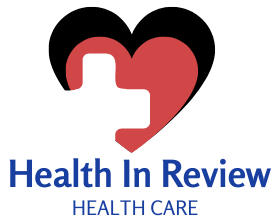Food preferences are a personal choice, but they are also the most significant factor affecting what we choose to eat. You may know that daily dietary choices deeply affect our health, and poor eating habits can increase the risk of chronic diseases such as cardiovascular diseases, type 2 diabetes, metabolic syndrome, and cancer. But did you know that your diet can also impact your brain and mental health?
4 Types of Eating Preferences Compared
A research team from the University of Warwick, UK, analyzed the eating preferences of over 180,000 participants and found that those with a balanced diet had better brain function and mental health.
Identifying 4 Types of Eating Preferences
Unlike previous studies that focused on specific diets, this research categorized participants’ eating preferences based on a new data analysis model. The four types of eating habits identified are:
- Low or No Starch Diet: Prefers fruits, vegetables, and protein-rich foods, with little preference for starchy foods.
- Vegetarian Diet: Prefers fruits and vegetables but avoids protein-rich foods.
- High Protein, Low Fiber Diet: Prefers snacks and protein-rich foods but consumes fewer fruits and vegetables.
- Balanced Diet: Enjoys all food groups equally.
Balanced Diet Wins
The researchers assessed how different eating preferences relate to mental health and brain function, and found that those following a balanced diet scored better in all aspects.
Fewer Mental Health Issues, Higher Happiness
In mental health tests, those with a balanced diet showed the lowest mental health problem scores and the highest happiness scores. Compared to balanced diet eaters, those following the other three eating patterns had higher risks of anxiety and eating disorders:
- Depression Risk: 18% higher for vegetarians, 22% higher for high-protein, low-fiber eaters.
- Anxiety Risk: 9% higher for low-starch eaters, 26% higher for vegetarians, 23% higher for high-protein, low-fiber eaters.
- Eating Disorder Risk: 186% higher for vegetarians, 86% higher for low-starch eaters, 96% higher for high-protein, low-fiber eaters.
Brain Health, Better Cognitive Function
MRI scans revealed that different diets affect brain structure. Those on a balanced diet had higher gray matter volume and thicker cortex in several key brain regions, which are closely linked to cognitive abilities.
In cognitive tests, balanced diet eaters had the fastest reaction times and second-best performance in symbol-digit matching, while those following a high-protein, low-fiber diet had the second-fastest reaction times and the highest accuracy in matching.
Lower Genetic Risk for Mental Illness
Dietary preferences can also affect genetic susceptibility to mental illnesses. Balanced diet eaters had lower genetic susceptibility to most mental disorders, while vegetarians were more genetically prone to conditions like Alzheimer’s disease, Parkinson’s disease, bipolar disorder, schizophrenia, and even suicidal tendencies.
How to Eat for a Balanced Diet?
A balanced diet is key to keeping your brain healthy and maintaining happiness. Here’s how to do it:
Diversified Foods
According to the Chinese Dietary Guidelines, diversity in food is the foundation of a balanced diet. Eat at least 12 different types of food daily, ensuring that you get over 25 different foods per week, including grains, vegetables, fruits, animal products, soy, and nuts.
Grains as the Main Source
Grains should form the base of a balanced diet. Aim for 200-300g of grains daily, including 150g of whole grains and legumes, and 50-100g of root vegetables like sweet potatoes.
Proper Combination and Balance
Your meals should be well-combined to balance carbohydrates, proteins, and fats:
- Carbohydrates: 50%-65% of total energy.
- Protein: 10%-15%.
- Fat: 20%-30%.
By following these simple dietary principles, you can maintain your health, boost cognitive function, and enhance your mental well-being.




